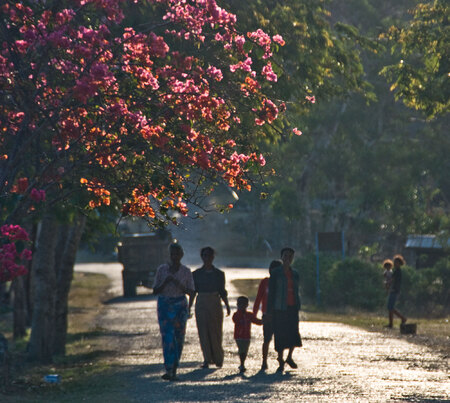So there we are. There’s any amount of things that I could moan about, and not without cause, either. But when I start to, I’m forced to admit that yes, we are behind, but yes, we are making progress. Sometimes it’s not enough and it’s never fast enough, but step by step, like the little engine that could, Vanuatu keeps climbing up that hill.
[Originally written for the Vanuatu Daily Post.]
There should be a trenchant, thought provoking column in this space, but I find I have nothing to gripe about. For today, at least, we live in the best of all possible worlds.
Sure, Vanuatu faces innumerable challenges. It’s still miles behind in education, health services, infrastructure, wealth… you name it. The rights of women are neglected, often criminally. The cost of living is going up, and the financial world is crumbling all around us.
But everywhere I look, I see problems worse than ours.

